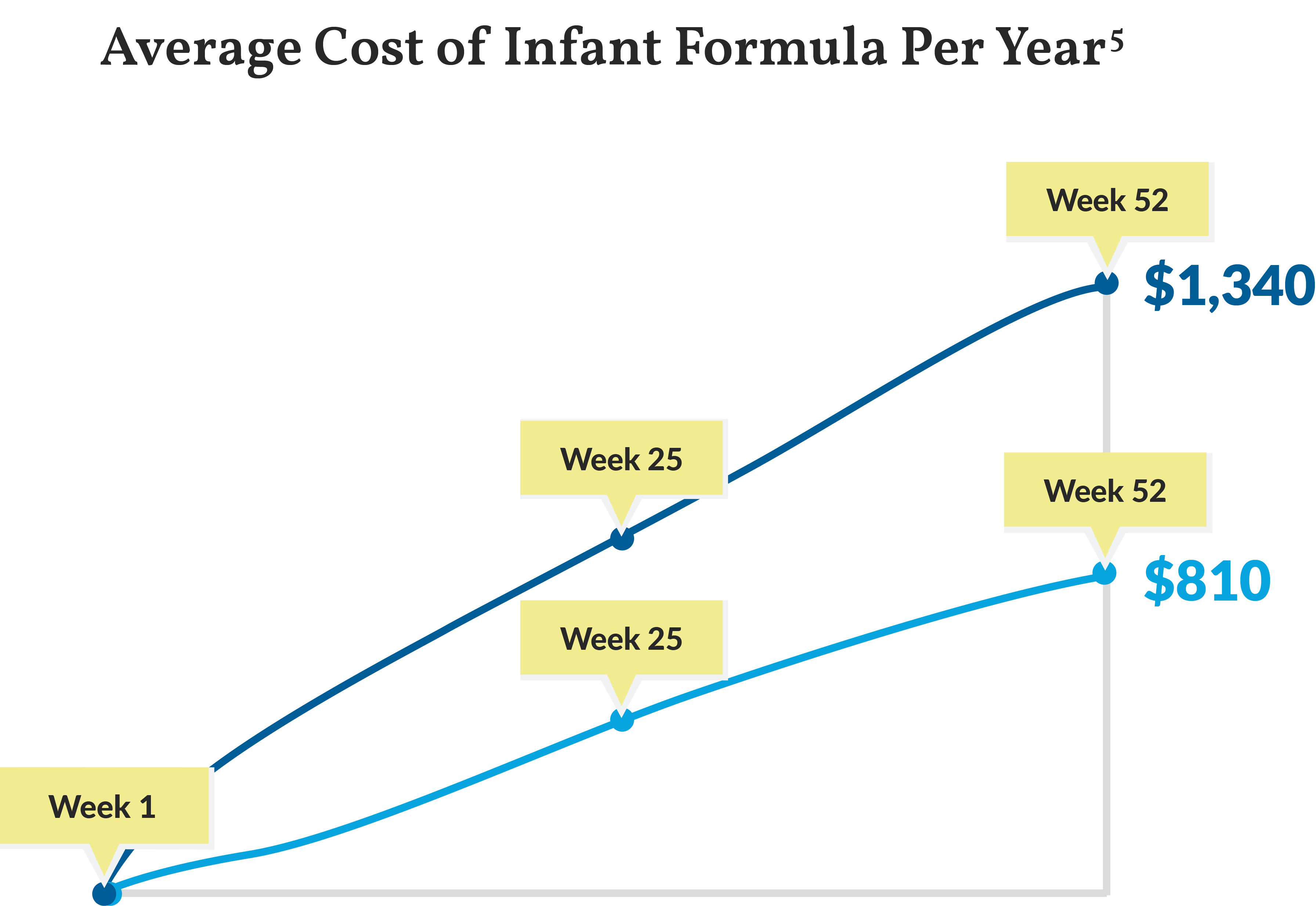The Power of Your Recommendation

Published December 2022
Parents rely most on their pediatric healthcare team pediatricians when it comes to all things related to feeding baby within the first year. That means the discussion around feeding with families has a big influence on their decisions; especially when it comes to infant formula, because formula feeding is often unplanned and unresearched.
In fact, 93% of moms plan on breastfeeding baby, so they don't research infant formulas before baby arrives1. By 6 months 75% of infants are receiving some infant formula2 and half of families report the cost is more expensive than expected leading to difficult nutritional decisions that impact the entire family3:
- 43% of moms are making other financial sacrifices in order to feed baby
- 35% of moms are purchasing fewer fruits and vegetables for their families in order to feed baby
- 28% have had to water down formula in order to make it last longer
It's important for pediatric care providers to consider the cost when recommending an infant formula to the families within their practices. While it feels good reaching into a sample closet knowing the family is going home with quality nutrition for a few days, that free sample can have major cost implications. Research says 69% of families see it as an endorsement of the name brand.4
It turns out that being helpful isn't always helpful. The "free" sample of name brand formula can end up costing parents up to $1,325 a year or more.5 At a time when 40% of Americans find it difficult to afford a $400 emergency expense6, upwards of $1,325 for infant formula is a big deal.

With that "free" sample of nationally advertised infant formula, pediatricians may be unintentionally recommending something families can't easily afford. In some cases, it can actually lead to unsafe feeding practices such as diluting infant formula to stretch their budget. Store brand infant formula provides complete nutrition that families can more easily afford. That's because store brand infant formula costs up to 40% less than national brands and can save families up to $530 a year which can have a big impact for the whole family.5
Recommending store brand infant formula is just like recommending generics. Healthcare providers confidently recommend generics in other categories to help families save money. Recommending store brand infant formula is similar because it provides complete nutrition just like nationally advertised name brands.
Help Families by Talking About Store Brand Infant Formula
When you reach for the sample closet, be sure to also talk about all available options, including store brand infant formula feel confident about recommending complete nutrition, so your patients stretch their paycheck, not their formula. Here's what they need to know:
- All infant formula sold in the USA is required to meet the same FDA quality and nutritional standards, ensuring complete nutrition for infants.
- Clinically studied to support growth and development7
- Meets or exceeds FDA quality and nutritional standards
- Costs up to 40% less than national brands3